Black, Indigenous, and young people of color have untapped potential to influence the future of civic life in the U.S. However, the impacts of systemic racism, white supremacy and implicit bias places barriers in the way of their leadership and engagement. Many decision-makers do not see youth and emerging BIPOC youth leaders of color as worthy of investment. The long-term goal of YEF is to shift the culture among decision-makers so that they think about young people of color as leaders in their communities. With redistricting reform, the census, and other issues at stake for communities of color, there is no greater time to shift the culture of decision-makers so that they fully value and invest in Black, Indigenous, People of color youth of color.
The U.S. is a representative democracy and it is therefore critical for individuals or communities to participate, particularly people and communities of color. YEF is launching a new roadmap for funders aimed at building the civic engagement and leadership of young people in communities impacted by racism, white supremacy and poverty so that they can have an impact on civic engagement outcomes for generations to come. In the next two decades (2022 – 2044), the U.S. is projected to become a “minority-majority” nation as a result of growth among Asians, Latinx, and a slight increase in Native and the Black populations. Therefore, youth civic engagement efforts of the project will engage these communities in order to harness their civic influence through 2022 in preparation for long term infrastructure and power building.
However, among the young people who are facing the brunt of systemic racism, civic participation is disproportionately low. There are key barriers to youth civic participation within oppressed communities, including the following problems that YEF is working to address:
Local youth-focused organizations are best positioned to overcome these barriers because their positions as trusted leaders allow them to successfully inspire and motivate youth to take action to create change in their community. However, youth-focused organizations are strained for year-round resources and technical expertise to reach voters consistently around the issues they care about. Especially, organizations in the South –a region that has been traditionally underfunded. Based on a study by NCRP, foundations only invest 56 cents per person in the South compared 1 dollar per person nationally. YEF exists to fill this resource gap by providing re-granting and convening resources for nonpartisan youth-focused campaigns and organizations, particularly in the South and Southwest.
Over the past year, YEF and Center for Information & Research on Civic Learning and Engagement (CIRCLE) CIRCLE have engaged in conversations that expanded the breadth of the Youth Electoral Significance Index (YESI) to include localized factors that impact elections, and indicators such as infrastructure, and upcoming, an analysis of where specific subgroups of youth can have a particularly large impact. These additional indicators bring to light a list of states and districts where young people are poised to affect elections all over the country, including places like Arizona, Florida, Georgia and Alabama. CIRCLE’s most recent youth poll released June 30th, shows that “Youth Are More Active, Engaged, and Committed to Change than in 2016 and 2018”. The impact of the pandemic on communities made vulnerable by a lack of safety net, and the rage of the killing of Black lives prompted a wave of protests across the country that have now continued for almost 60 days to date. And the people organizing, mobilizing, and showing up are by far young people of color. According to a New York Times article that analyses the Black Lives Matter protests through data collected via several polls, it is estimated that as of June 6th, there have been almost 5,000 demonstrations across the country and that “the age group with the largest share of protesters was people under 35.”
Young people, young people of color have the acumen and knowledge of how issues that impact their daily lives are connected to democracy and the power of the vote. They are deeply aware that they are not only inheriting the world and society we are shaping now, but that they will be the leaders of a shifting demographic, a growing multi-racial democracy, and a transformative democratic process and re-defining ownership of who and what civic participation looks like.
According to the Census Bureau, the South and Southwest –where YEF’s focus states of Arizona, Texas, New Mexico, Georgia, and Florida are located –are where children and youth of color make up more than half the population among their peers. It is a region that has traditionally lacked significant financial resources for civic engagement until 2018, especially in youth of color led efforts. The social and economic climate of xenophobia, racism, and misogyny in American culture that disproportionately criminalizes and dehumanizes communities of color, coupled with a growing consciousness rooted in intersectionality among Generation Z and Millennials creates the opportunity for philanthropy to ensure year-round nonpartisan civic engagement efforts led by and for BIPOC youth of color & their communities. YEF aims to continue to support the growing youth infrastructures across the country and build on the work of philanthropic partners seeking to increase civic engagement capacities in these communities.
Arizona | Georgia |
|---|---|
|
|
Ohio | Louisiana |
|---|---|
|
|
New Mexico | Colorado |
|---|---|
|
|
Mississippi | Alabama |
|---|---|
|
|
Florida | Texas |
|---|---|
|
|
National |
|---|
|



